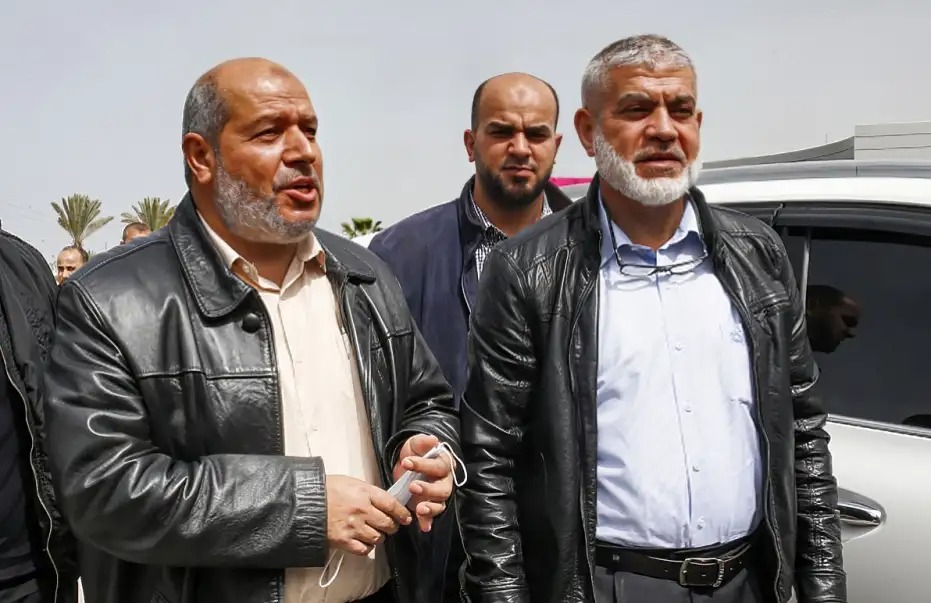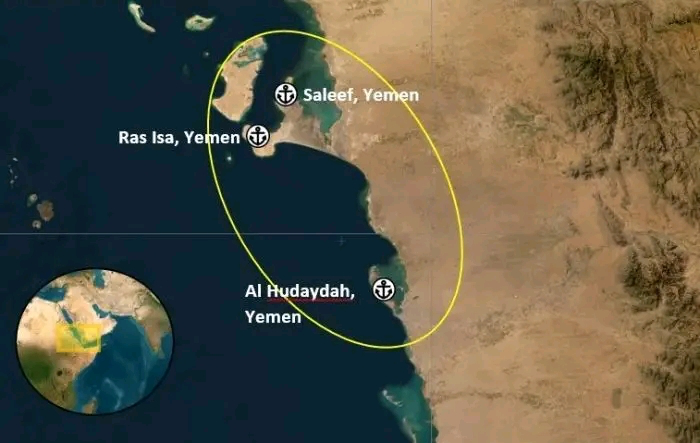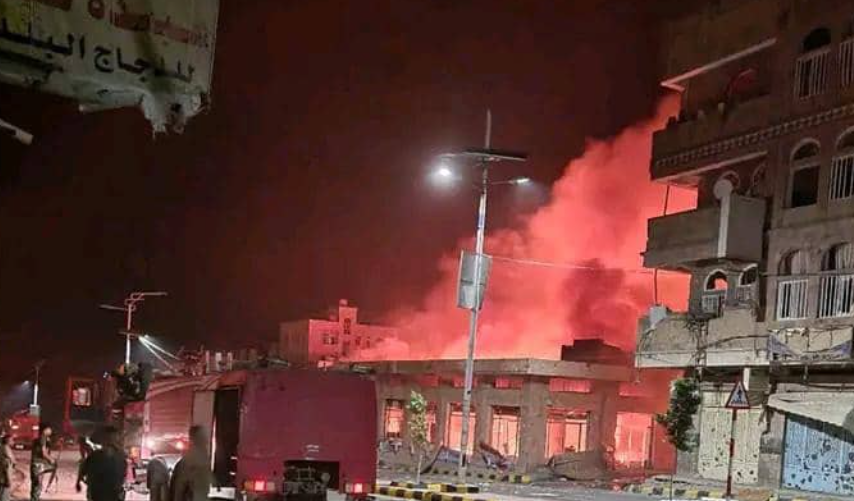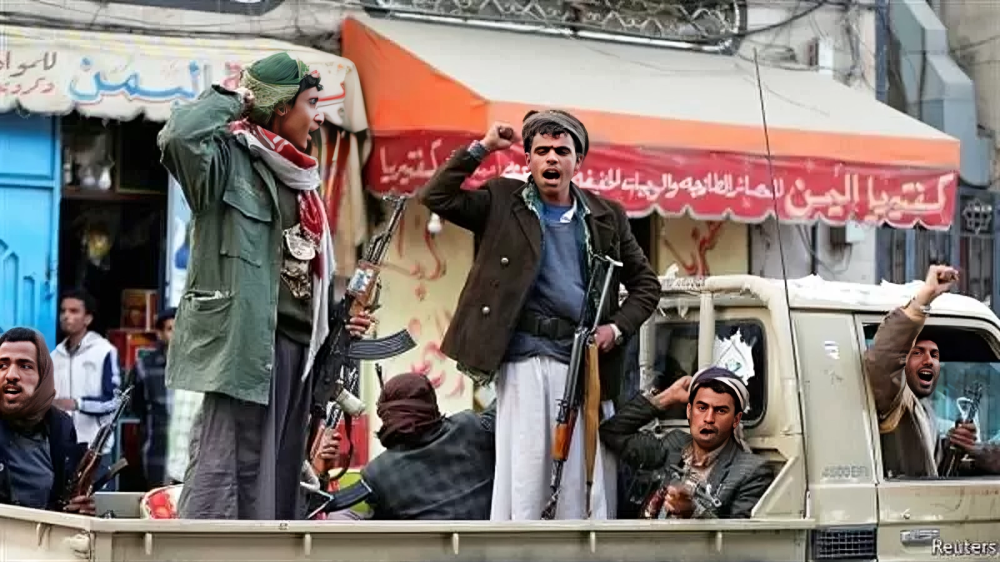
Barran Press - Al-Araby Al-Jadeed + Agencies
On Thursday, October 3, 2024, the Israeli military and the Shin Bet security agency announced the fourth assassination of Hamas political bureau members Rohi Mushtaha and Samih Al-Sarraj, along with security leader Sami Awda, in an airstrike on Gaza City three months ago.
Israeli Defense Forces spokesperson Avichai Adraee stated in a post on X (formerly Twitter) that the military and Shin Bet had "eliminated" Mushtaha, Al-Sarraj, who was described as "responsible for security matters within Hamas's political bureau," and Awda, identified as "head of Hamas's security apparatus."
Adraee explained that fighter jets targeted the three leaders "based on precise intelligence" while they were hiding in an underground complex in northern Gaza.
He highlighted that Mushtaha "served as a government official in Gaza, was responsible for prisoner affairs within the political bureau, and previously held the position of finance minister." Mushtaha, who helped establish Hamas's security apparatus with Yahya Sinwar, had previously served time in Israeli prisons.
"Up until the outbreak of the current war, he was considered the highest-ranking and most prominent figure in Hamas's political bureau in Gaza, managing the organization’s activities during the conflict while promoting operations against Israel," Adraee emphasized, noting that Mushtaha was "Sinwar's right-hand man and one of his closest associates."
While Hamas has neither confirmed nor denied the deaths of Mushtaha and the other leaders, the recent announcement by Israeli authorities suggests they are confident in their claims regarding the successful strike on a Hamas tunnel in Gaza. This marks the fourth time Israeli officials have claimed the assassination of Mushtaha, Awda, and Al-Sarraj.
Since the onset of the Israeli war on Gaza on October 7, 2023, Hamas has reported only a few assassinations of its leaders, including the deaths of military commanders Ayman Nofal and Ahmad Al-Ghandour, as well as political figures like Jawad Abu Shamala and Zakaria Abu Omar, without referencing any further assassination claims.
The movement appears to be employing a political and moral strategy of not announcing assassinations, regardless of their success or failure, amid unprecedented security conditions in the region, as the war nears its second year without a political resolution or imminent agreement.
In recent months, Israel has claimed to have assassinated prominent leaders in both the political and military wings of Hamas, including Muhammad Deif, whom Hamas has asserted on four occasions is still alive, along with his deputy Marwan Issa and the commander of the Khan Younis brigade, Rafat Salameh. The fate of these individuals remains unclear, with Israeli announcements left open-ended.
Mushtaha: The Quiet Leader
Rohi Jamal Abdul-Ghani Mushtaha, known as "Abu Jamal," was born in the Shuja'iyya neighborhood of Gaza City in 1959. He joined Hamas immediately after its founding in 1987, contributing to the establishment of the movement's first security apparatus, known as "Mujad," during the first Intifada. He was arrested by Israeli forces on February 13, 1988, from the Arab Hospital.
Just six months after his marriage, he was detained, sustaining injuries that led to the amputation of several fingers on his right hand. Subsequently, he received a life sentence due to his security and military activities, particularly targeting collaborators with the Israeli occupation, spending at least 25 years in Israeli prisons.
Mushtaha was released in a prisoner exchange deal between resistance factions, primarily Hamas, and Israel in 2011. He then resumed his political activities within the Islamic movement, serving on its political bureau and managing various administrative files related to the movement and its government.
During the Israeli war on Gaza in 2014, Mushtaha was placed on a list of targets for assassination by Israeli authorities as one of Hamas's leaders in the region.
After negotiations between Hamas and Egyptian authorities, Mushtaha became the movement's representative to the Egyptian intelligence service, responsible for coordinating all issues concerning Gaza and the movement. He frequently traveled between Gaza and Cairo from 2017 until the outbreak of the current conflict.
Israel accuses Mushtaha of overseeing the movement's financial operations and the administrative file related to the government in Gaza, previously chaired by former political bureau member Issam Al-Dalalis, who was also reportedly targeted during the ongoing war.
Security Figures
Samih Al-Sarraj, known as "Abu Fikri," is a low-profile figure who has been a member of Hamas's political bureau for several years. He is noted for his dual role in both the political and military spheres, regarded as part of the second generation following the founders.
Al-Sarraj has survived multiple assassination attempts during various Israeli offensives in Gaza from 2008 to 2023, while continuing his work in the movement's security sector and managing its financial affairs.
Limited information suggests he has been part of Hamas's political bureau for three electoral terms, granting him considerable influence in decision-making related to the movement's security management since its electoral victory in 2006.
Sami Awda, also reported killed in the same operation, served as the head of Hamas's security apparatus, coordinating closely with the military intelligence of the Izz ad-Din al-Qassam Brigades. While little is known about Awda’s background, he has managed sensitive security files crucial to the movement's operations in Gaza.
Israel has previously attempted to assassinate Awda during the 2021 conflict, but he survived and continued to lead the security apparatus until Israeli claims of his assassination during the current war.
The recent declarations from Israeli authorities have heightened tensions and uncertainty within Gaza, as Hamas navigates a precarious landscape amidst ongoing military operations.





